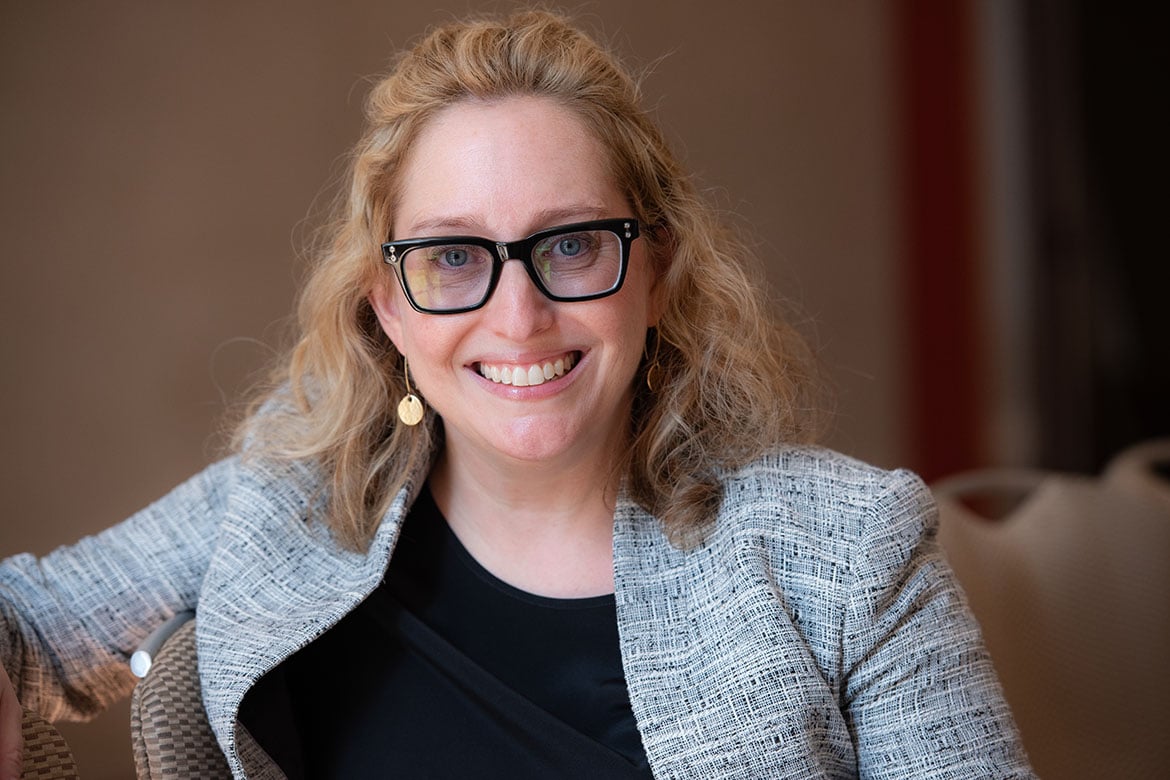The transition to medical school can be a rocky one for many medical students. When students do struggle out of the gate, Suzanne J. Templer, DO, is there to offer support.
Dr. Templer—assistant dean for student affairs and director of coaching services at University of Pittsburgh School of Medicine (Pitt)—oversees a preclinical academic success coaching program for medical students there.
For students who start medical school off on the wrong foot, Dr. Templer, an AMA member, offered a few tips to get back on track.
Use active study methods
For many medical students, studying in college is often an exercise in memorization using methods such as flash cards. That won’t work at the medical school level due to the volume and depth of information they need to learn said Dr. Templer, who presented on her work in preclinical academic coaching during the recent AMA ChangeMedEd® 2023 conference in Chicago.
To enhance the long-term benefits of studying, Dr. Templer said the best method is to “do things that are active when you are studying. Take notes while watching a video, make your own questions and quiz yourself by covering up the answer, or find a study partner and take turns discussing topics and explaining it in depth to the other person. These are all very good ways to assess where your gaps are.”
Another example of an effective active-study method is for students to draw out disease pathways. That can be more effective than merely looking at them on a screen or textbook and trying to memorize them.
The AMA Succeeding in Medical School series offers tips and other guidance on a wide range of critical topics, including preparing for USMLE exams, navigating clinical rotations, publishing scientific research, and maintaining optimal health and wellness.
Put in the work
Sometimes it’s the methods that hold students back. Other times it is misunderstanding of the required time commitment to succeed in medical school.
“There is for some students a struggle with both basic time management issues and recognizing that being in medical school is a full-time job,” said Dr. Templer, an infectious diseases physician. “You are going to be working somewhere between 40–60 hours a week. You are going to have to wake up in the morning and be somewhere at a certain time, even if you don’t have class. There’s an aspect of self-management that students can struggle with.”
Don’t tread water
If you are skimming along the pass-fail line, even if you are on the right side of it, that likely is a red flag. If students are struggling, there are proactive measures they can take to get on track.
“Go to review sessions,” Dr. Templer said. “Don’t be afraid to go to a professor or TA [teaching assistant] and ask questions. Go out and find a study group.”
Know what you don’t know
Practice questions from QBanks and other sources are a useful assessment tool, but often they aren’t used as such.
“A lot of students have this theory that they can’t do practice questions unless they are ready to test,” Dr. Templer said. “Practice questions are a learning tool. If you are doing immunology, don’t wait until the day before your exam to go over those practice questions. Do them from the beginning, because when you are going through and reviewing them you can recognize gaps.”
Give yourself a break
Physical and mental energy are finite. While goal-setting in studying isn’t necessarily a bad thing, Dr. Templer said having some flexibility with those goals is key. If the words on the screen start blending together, or you tune out while watching a video, it is a sign you need to take a break, Dr. Templer said.
“I’ve seen students take one or two additional hours because they want to get through a certain thing, a certain number of questions or a certain number of pages cited,” she said. “If they just would have gone to the gym or listened to music or did something else, they probably would have gotten through it in a half hour.”
“Stepping away allows your brain to process and consolidate what you have been learning. Then, when students re-engage with the material, it all comes together.”
Hone a growth mindset
Many students enter medical school with a fixed mindset, meaning they believe that they are either good or bad at a task or topic, Dr. Templer said. Medical school learning requires an evolution to a growth mindset in which the learner doesn’t view a suboptimal result as failure but instead sees it as a challenge.
“In a growth mindset, you set high goals and look at them as a challenge—but not a must,” Dr. Templer said. “Everybody in medical school is going to make mistakes and have failures. Understanding that those setbacks don’t have to define you is so important.”
“Nothing is unrecoverable. I have had students fail one Step exam and go onto very successful careers. Society tells them that there are these high-stakes things they must achieve,” she said. “It’s about listening to the internal messaging rather than the external.”
Don’t skip out on sleep
Getting enough rest is key. A well-rested medical student is able to think clearly, stay engaged, and perform at their best.
“Pulling all-nighters does not work,” Dr. Templer said. “Although a student may do well on that one exam [after the all-nighter], they will lose those facts if they don’t go back and look at the material again. Sleep is also the time when the facts learn consolidate and placed in long term memory.”
The AMA’s Facilitating Effective Transitions Along the Medical Education Continuum handbook takes a deep dive into the needs of learners along the continuum of medical education—from the beginning of medical school through the final stage of residency. Download now.





